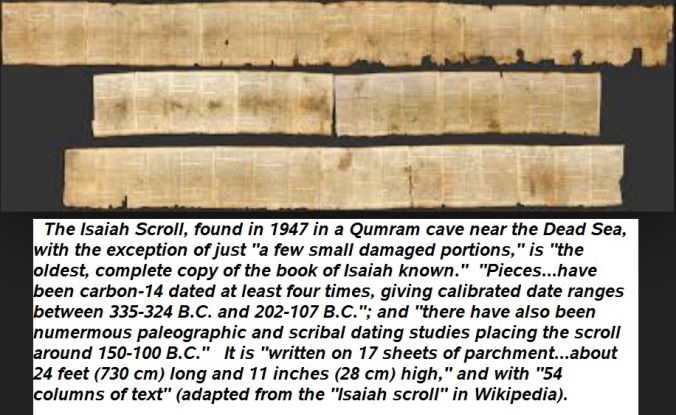“Go therefore and make disciples of all the nations…teaching them to observe all that I commanded you; and lo, I am with you always, even to the end of the age” (Matthew 28:19-20, NASB).
——————
Contents:
1) Is Thy Heart Right with God? (John Isaac Edwards)
2) Gossip: A Heart Disease (David Hartsell)
——————–

-1-
Is Thy Heart Right with God?
John Isaac Edwards
The Scriptures often make reference to the heart, the thinking part of man (Prov. 23:7).
Wise Solomon counseled, “Keep thy heart with all diligence; for out of it are the issues of life” (Prov. 4:23). When Simon thought he could purchase the gift of God with money, he was told, “…thy heart is not right in the sight of God” (Acts 8:21). Thus we ask, “Is thy heart right with God?” It would be good for each of us to have a spiritual heart exam. You might use this study as a personal checklist to help determine whether your heart is right with God. Do you have…
1) A Loving Heart?
When asked, “Master, which is the great commandment in the law?” (Mt. 22:36), Jesus answered, “Thou shalt love the Lord thy God with all thy heart, and with all thy soul, and with all thy mind” (Mt. 22:37). Do you have a heart that loves God above everyone and everything else?
2) An Honest and Good Heart?
In the Parable of the Sower, as recorded in Luke 8:4-15, Jesus told about four places the seed fell. These soils represent different hearts. “…that on the good ground are they, which in an honest and good heart, having heard the word, keep it, and bring forth fruit with patience” (Lk. 8:15). Does this describe your heart?
3) A Pricked Heart?
When devout Jews on Pentecost heard Christ preached, “…they were pricked in their heart, and said…what shall we do?” (Acts 2:37). We need a heart that is so touched by the word of God that we would ask, “what shall we do?” And whatever the Lord would have us to do, we will gladly do it as, “…they that gladly received his word were baptized…” (Acts 2:41). How does your heart respond to the word of God?
4) A Single Heart?
Those who obeyed the gospel on Pentecost were described as having “…singleness of heart” (Acts 2:46). Paul instructed Ephesian and Colossian servants to be obedient to their masters “…in singleness of your heart…” (Eph. 6:5; Col. 3:22). A single heart is without double-mindedness. It’s not divided. It does not seek to please outwardly, but is one of sincerity.
5) A Believing Heart?
When the treasurer asked about being baptized, Philip said, “If thou believest with all thine heart, thou mayest. And he answered and said, I believe that Jesus Christ is the Son of God” (Acts 8:37). Paul taught, “That if thou shalt confess with thy mouth the Lord Jesus, and shalt believe in thine heart that God hath raised him from the dead, thou shalt be saved. For with the heart man believeth unto righteousness; and with the mouth confession is made unto salvation” (Rom. 10:9-10). Is your heart a believing heart?
6) A Purposed Heart?
Remember Daniel? He “…purposed in his heart that he would not defile himself…” (Dan. 1:8). Barnabas exhorted first-century Christians, “…that with purpose of heart they would cleave unto the Lord” (Acts 11:23). Our giving is to be, “Every man according as he purposeth in his heart…” (2 Cor. 9:7). Is your heart resolved or determined in this way?
7) An Obedient Heart?
Paul wrote, “But God be thanked, that ye were the servants of sin, but ye have obeyed from the heart that form of doctrine which was delivered you. Being then made free from sin, ye became the servants of righteousness” (Rom. 6:17-18). Without an obedient heart, we will not be saved! Christ is “…the author of eternal salvation unto all them that obey him” (Heb. 5:9).
8) A Melody-Making Heart?
Ephesians 5:19 teaches, “Speaking to yourselves in psalms and hymns and spiritual songs, singing and making melody in your heart to the Lord.” Is there within your heart a melody? It is also written, “Let the word of Christ dwell in you richly in all wisdom; teaching and admonishing one another in psalms and hymns and spiritual songs, singing with grace in your hearts to the Lord” (Col. 3:16).
9) A Will of God-Doing Heart?
The Ephesians were instructed, “…as the servants of Christ, doing the will of God from the heart” (Eph. 6:6). Is your heart committed to doing the will of God? Jesus said, “Not every one that saith unto me, Lord, Lord, shall enter into the kingdom of heaven; but he that doeth the will of my Father which is in heaven” (Mt. 7:21).
10) A Pure Heart?
Paul admonished Timothy to have “…a pure heart…” (1 Tim. 1:5) and “…follow righteousness, faith, charity, peace, with them that call on the Lord out of a pure heart” (2 Tim. 2:22). Peter penned, “Seeing ye have purified your souls in obeying the truth through the Spirit unto unfeigned love of the brethren, see that ye love one another with a pure heart fervently” (1 Pet. 1:22).
11) A True Heart?
Exhorting Christians to be steadfast and unmoveable, the Hebrew writer declared, “Let us draw near with a true heart in full assurance of faith…” (Heb. 10:22). When Christians do not hold fast, waver, fail to consider one another and forsake the assembling of ourselves together, it is a symptom of spiritual heart trouble! (Heb. 10:23-27).
Can you put a check mark next to all of these? Is thy heart right with God?
— Via The Terre Haute Speaker, Volume 4, Number 50, December 13, 2015
——————–

-2-
Gossip: A Heart Disease
David Hartsell
What is gossip? It is negative, unflattering words that when spread hurt the reputation of others. Sometimes gossip is made up out of thin air. Other times the bare facts related, might be true, but many significant factors are left out, thus leaving a wrong impression. Gossip can be true but serves no good to pass it on. How does the Bible describe it? God’s Word often uses words like whispers, backbiters, and evil speaking (Rom. 1:29-32; 2 Cor. 12:20 & 1 Pet. 1:1). How serious is this behavior to God? Briefly, let us look at some truths about gossip and its spiritual dangers.
Why is whispering so detrimental? What are its fruits? First, whispering can cause strong friendships to dissolve (Prov. 16:28). Imagine how this would interrupt spiritual unity and progress in the church if the conflicting friends were brethren? We must carefully measure everything we say. The consequences can be powerfully negative. Also, backbiting can feel like the “piercing of a sword” (Prov. 12:18). Has unfair, critical talk about you gotten back to you? It hurts so deeply! This is not what Jesus taught us to do. He commands us to treat others in the way we would like to be treated (Matt. 7:12). Loose speech not only damages the reputation of others, but it diminishes the usefulness of the gossiper. The only one who wins in this scenario is Satan.
Since God’s Word offers such serious warnings against whispering, why do people do it? There are many reasons people participate in loose talk. Some pass on negative information either because they are unaware of the truth or unconcerned about its veracity. Paul said he was slandered when people reported he taught it was all right to do wrong as long as good was accomplished (Rom. 3:8).
That concept is not true. He did not teach it. And it, no doubt, hurt his influence with some. Envy is another reason people will gossip. Some at Corinth were jealous of Paul’s authority and influence over the brethren there. Therefore, they strongly criticized his right and ability to lead God’s people (2 Cor. 10:10-11). Paul warned those backbiters that he would deal with them when he came back to Corinth. Finally, some just like meddling in other people’s affairs. It’s exciting to them. Peter strongly cautions disciples not to be busybodies (1 Pet.4:15). He puts this sin in the same category as being a thief, and evil doer, or a murderer. God disapproves of careless speech.
How can I refrain from gossiping? The simplest answer is to love God. We show our love for Him by “keeping His commands” (1 John 5:3). When we love Him we love each other. Jesus once said, “By this all will know that you are my disciples, if you have love for one another” (John13:35). That love will not just refrain from evil speech but it will uplift and encourage others (Eph. 4:29). Are we a faithful, wise Christian who can listen to sensitive things and give sound advice while keeping quiet about the whole matter? God has shown us what is good. Let’s not forget it!
“Let your speech always be with grace, seasoned with salt…” (Colossians 4:6).
— Via the bulletin of the Birchwood Avenue church of Christ
——————–
“Until I come, devote yourself to the public reading of Scripture, to exhortation, to teaching. … Keep a close watch on yourself and on the teaching. Persist in this, for by so doing you will save both yourself and your hearers” (1 Tim. 4:13,16, NASB).
——————–
The Steps That Lead to Eternal Salvation
1) Hear the gospel, for that is how faith comes (Rom. 10:17; John 20:30,31).
2) Believe in the deity of Christ (John 8:24; John 3:18).
3) Repent of sins (Luke 13:5; Acts 17:30).
4) Confess faith in Christ (Rom. 10:9,10; Acts 8:36-38).
5) Be baptized in water for the remission of sins (Mark 16:16; Acts 2:38; 22:16; Rom. 6:3,4; Gal. 3:26,27; 1 Pet. 3:21).
6) Continue in the faith, living for the Lord; for, if not, salvation can be lost (Heb. 10:36-39; Rev. 2:10; 2 Pet. 2:20-22).
——————–
Tebeau Street
CHURCH OF CHRIST
1402 Tebeau Street, Waycross, GA 31501
Sunday services: 9:00 AM (Bible class); 10 AM & 5 PM (worship)
Wednesday: 7 PM (Bible class)
evangelist/editor: Tom Edwards (912) 281-9917
Tom@ThomasTEdwards.com
http://thomastedwards.com/go (Older version of Gospel Observer website without pictures, but back to March 1990)
http://tebeaustreetchurchofchrist.org/
http://ThomasTEdwards.com/audioser.html (audio sermons)








